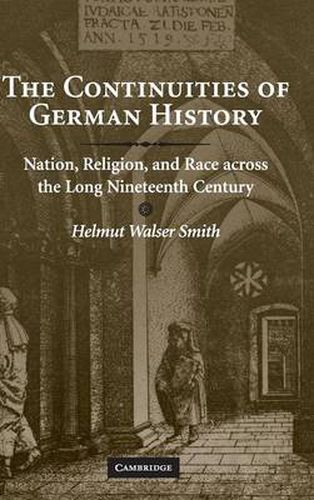Readings Newsletter
Become a Readings Member to make your shopping experience even easier.
Sign in or sign up for free!
You’re not far away from qualifying for FREE standard shipping within Australia
You’ve qualified for FREE standard shipping within Australia
The cart is loading…






This book opens the debate about German history in the long term - about how ideas and political forms are traceable across what historians have taken to be the sharp breaks of German history. Smith argues that current historiography has become ever more focused on the twentieth century, and on twentieth-century explanations for the catastrophes at the center of German history. Against conventional wisdom, he considers continuities - nation and nationalism, religion and religious exclusion, racism and violence - that are the center of the German historical experience and that have long histories. Smith explores these deep continuities in novel ways, emphasizing their importance, while arguing that Germany was not on a special path to destruction. The result is a series of innovative reflections on the crystallization of nationalist ideology, on patterns of anti-Semitism, and on how the nineteenth-century vocabulary of race structured the twentieth-century genocidal imagination.
$9.00 standard shipping within Australia
FREE standard shipping within Australia for orders over $100.00
Express & International shipping calculated at checkout
This book opens the debate about German history in the long term - about how ideas and political forms are traceable across what historians have taken to be the sharp breaks of German history. Smith argues that current historiography has become ever more focused on the twentieth century, and on twentieth-century explanations for the catastrophes at the center of German history. Against conventional wisdom, he considers continuities - nation and nationalism, religion and religious exclusion, racism and violence - that are the center of the German historical experience and that have long histories. Smith explores these deep continuities in novel ways, emphasizing their importance, while arguing that Germany was not on a special path to destruction. The result is a series of innovative reflections on the crystallization of nationalist ideology, on patterns of anti-Semitism, and on how the nineteenth-century vocabulary of race structured the twentieth-century genocidal imagination.